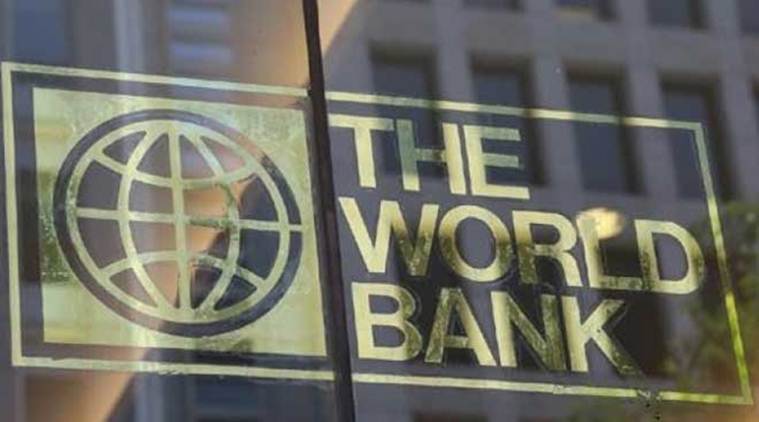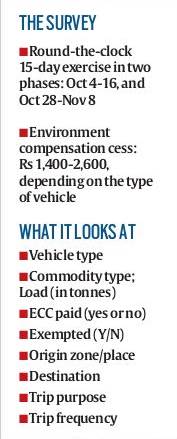- India
- International
Ease of business: New insolvency rules, tax norms lift India 30 ranks to top 100
Proof of reform, says PM Narendra Modi; protecting minority investors also key to surge
 The World Bank report said the improvement in ranking for India has come on the back of “sustained business reforms” over the last four years. (Representational)
The World Bank report said the improvement in ranking for India has come on the back of “sustained business reforms” over the last four years. (Representational)
Boosted by substantive jumps in the areas of protecting minority investors through tightening of securities regulations, improvement in rules related to businesses paying taxes and access to getting credit and resolving insolvency, India surged up 30 places to the 100th rank among 190 countries in the latest edition of the World Bank’s global rankings on Ease of Doing Business.
According to the Bank’s Ease of Doing Business 2018 report, India figures among the top 10 countries that have marked an improvement this year moving up in rankings of six out of 10 “Doing Business” indicators.
Last year, India gained one slot in the World Bank’s rankings, from 131 to 130. While acknowledging the “substantial progress” in rankings, the report shows that India still lags in areas such as starting a business (156), enforcement of contracts (164), dealing with construction permits (181) and registering property (154).
The World Bank report said the improvement in ranking for India has come on the back of “sustained business reforms” over the last four years.
Read | Ease of doing business now cease of doing business: Congress

Hailing the new ranking, Prime Minister Narendra Modi tweeted that the “historic junp” is a testament to the “multi-sectoral reform push of Team India.” He added: “India welcomes the world to explore economic opportunities our nation has to offer…Guided by the mantra of ‘Reform, Perform & Transform,’ we are determined to further improve our rankings and scale greater economic growth.”
The new indirect tax regime of Goods and Services Tax was, however, not a part of the report as the cut-off date for incorporating the reforms was June 1 and so it will be part of the evaluation process from next year.
Demonetisation was also not reflected in the report as it was not comparable across countries being a one-time event, the World Bank said.
Union Finance Minister Arun Jaitley said the work done for protecting minority investors through changes in the Companies Act and facility of National Company Law Tribunal (NCLT) helped India move up to the 4th ranking among the 190 countries, while “online system for tax payments, filing returns and assessments” helped the country to move up 53 places to ranking of 119 for ‘paying taxes’.
“India made paying of taxes easier by requiring that payments are made electronically to the Employees Provident Fund and introducing a set of administrative measures for easing compliance with corporate income tax,” the report said.
Read | Results demonstrate PM Modi’s focus on improving lives, says Amit Shah
Jaitley added that for the remaining three to fout areas which are lagging behind, a lot of work is being done so that India jumps up from its 100th ranking.
“Work is in progress and I think if we are able to expedite the work over the next few months in these areas, there is a huge scope for us to now jump up from this position number 100,” he said.
He added that “there is reason to believe that we have the capacity to further significantly improve our position” and the target of making it to top 50 in rankings is “doable”, as targeted by Prime Minister Modi. “In the very first year (of NDA government), Prime Minister had said that our target should be to take India in first 50. I believe this is doable,” he said.
“We are seriously taking up these issues where we are still lagging behind so that these are the areas in which a 20-30 point improvement in the next one to two years is reasonably possible,” he added.
According to the report, time taken to enforce contract is longer today at 1,445 days than it was 15 years ago (1,420 days). In starting a business, India has reduced the time needed to register a new business to 30 days now, from 127 days 15 years ago.
“However, the number of procedures is still cumbersome for local entrepreneurs who still need to go through 12 procedures to start a business in Mumbai, which is considerably more than in high-income economies, where it takes five procedures on average,” the report said.

For the lagging area of construction permits, Jaitley said that municipal permits come under the purview of state governments and, therefore, they have nudged states to expedite municipal permits for construction. “We are nudging the state governments that all the construction permits should now be online. The application should be online and permits should be online and this cuts costs, eliminates discretion,” he said.
Reacting to the improvement in the rankings, BJP president Amit Shah said that “better business environment is leading to better business opportunities for our entrepreneurs particularly small and medium enterprises”.
In the Doing Business report 2018, “distance to frontier metric,” the underlying metric of the Doing Business rankings, improved by over 8 per cent to 60.76 in 2018 from 56.05 in 2017.
India featured among the ten most improved economies in the world in this year’s Doing Business rankings, accompanied by Brunei Darussalam, Thailand, Malawi, Kosovo, Uzbekistan, Zambia, Nigeria, Djibouti and El Salvador, the report said.
In the South Asia region, India now ranks below only Bhutan, which has a Doing Business ranking of 75. Other six countries have figure below India in the rankings, with Nepal at 105, Sri Lanka at 111, Maldives at 136, Pakistan at 147, Bangladesh at 177 and Afghanistan at 183.
Countries in sub-Saharan Africa region, however, have a higher ranking than India. Rwanda has 41st rank, Kenya has 80th rank, Botswana 81st rank and Zambia has 85th rank.
Annette Dixon, Vice President, South Asia region, World Bank said, “The significant jump this year is a result of the Indian government’s consistent efforts over the past few years…India’s efforts have been instrumental in helping to close the gap towards international best practice. Not only India has moved in its relative ranking to other countries, it’s also moving up in its absolute ranking in terms of distance to frontier metric.”
Asked what India needs to improve to be in the top 50, Dixon said, “What we see amongst countries that do consistently well in improving doing business, they have, year after year, put in persistent effort. It’s not the one-time things that a country does. Each year, they actually identify areas where they can continue to make progress, and in doing so, are actually pushing the frontier forward.”
In September 2014, Prime Minister Narendra Modi at the launch of ‘Make in India’ had said that if the government brings transparency, India can move to 50th ranking. “If we have to come to 50 from 135, then Government alone can do this. If Government brings transparency in its decisions and rules, pushes works with simplicity we can occupy number 50 from 135 in ease of doing business,” he had said.
In May 2016, NITI Aayog CEO Amitabh Kant had even given a timeline of 3-4 years to reach the top 30 ranking. “Our objective is that in the next three-four years, India must come in the top 30 countries as far as ease of doing business is concerned,” Kant had said.
On GST, Dixon said that it is a “complicated reform” to roll out across the country and they expect to see the full impact of it only in next 2-3 years showing up in the Survey.
Dixon also emphasised that the growth of small and medium enterprises is important for job creation. “We see a very strong correlation from Doing Business between performance in Doing Business and role of performing economies who do create jobs. In India, we would like to see the SMEs growing to be larger. SMEs in India tend to be smaller than in other countries… India has over a million new job seekers joining the labour market every month and so seeking growth in SMEs is going to be very important for creating jobs at the rate that India needs,” she said.
Best of Express

Apr 19: Latest News
- 01
- 02
- 03
- 04
- 05






































